Photographs: Adnan Abidi/Reuters Nitin Desai
If the AAP fails to make a difference in the day-to-day experience of corruption, it will lose its constituency very quickly, notes Nitin Desai
The Aam Aadmi Party's spectacular debut in the Delhielection has shaken up India's political class because it was an expression of views about them and about governance more generally.
The revolt of the people is now not just at the periphery, in remote Naxal districts, but in the capital itself -- and that too a few months before the general election.
The AAP is spreading its wings, and all established parties are worried about its potential impact on their electoral fortunes.
The AAP succeeded in Delhi because it successfully gauged and articulated the sentiments of the common citizen on what needs to change in the governance of this country.
It ran polls and group discussions to find out what was troubling people most and articulated concerns of the disenchanted citizens very effectively.
What do its various statements tell us about the common citizen's views about economic policy? How feasible and desirable are the ideas that found expression in the AAP's election promises and subsequent statements by Arvind Kejriwal?
. . .
Why do Aam Aadmi Party's electoral promises make little financial sense?
Image: Supporters of the Aam Aadmi Party.Photographs: Adnan Abidi/Reuters
The dominant theme of the AAP's promises is to end the abuse of power by public functionaries and to change the nature of the relationship between the citizen and the government.
Hence, on the corruption issue there is the promise of an effective lok pal, the jailing and confiscation of the property of any public official found guilty of corruption, and strong support for honest public servants.
The AAP has taken the theme of decentralisation quite far, for instance, by talking of setting up 3,000 mohalla sabhas, or neighbourhood assemblies, to decide priorities for public spending in each area.
The common citizen's emphasis on corruption reflects personal experiences of having to go through touts or pay bribes for what should be theirs by right, like a ration card or a driving licence.
It also reflects the fear of tax authorities and inspectorate that affects not just the traders that Mr Kejriwal mentioned in his maiden speech but many others.
. . .
Why do Aam Aadmi Party's electoral promises make little financial sense?
Image: Arvind Kejriwal talks to the media.Photographs: Adnan Abidi/Reuters
Public functionaries empowered to enforce fiscal and other laws seem to treat everyone in their bailiwick as a potential criminal to be terrorised and bullied into submission -- or, if they are corrupt, as a potential source of illegal cash.
The honest citizen approaches the public functionaries with trepidation, while the dishonest citizen is hand in glove with them.
This is no way to run a government in a democracy.
The AAP is spot on in focusing on widespread corruption at the top (which is what the lok pal will tackle), and at the bottom where the bureaucracy interacts with the citizen (which is what will be addressed by the stringent penalties for corrupt public servants).
Tackling corruption at the top is wholly in the hands of the political class.
But one doubts whether the AAP's ideas about crowd-sourcing of surveillance and vigilance can really eliminate the deep-rooted rot lower down in the bureaucracy.
If the AAP fails to make a difference in the day-to-day experience of corruption, it will lose its constituency very quickly.
. . .
Why do Aam Aadmi Party's electoral promises make little financial sense?
Image: Arvind Kejriwal.Photographs: Adnan Abidi/Reuters
The AAP's message of decentralisation is problematic.
Consider the role of the proposed neighbourhood assemblies in determining public expenditure priorities.
What happens if one neighbourhood gives priority to repaving a road while an adjoining neighbourhood decides against giving such priority to the continuation of the road in its area?
The same inconsistency could arise in other areas, like the relaying of water pipes or improving street lighting. Decentralisation cannot be at the expense of rational planning of infrastructure, which requires decision making to be made at a higher level than the neighbourhood.
The AAP has another major plank in its platform, and that is of making basic necessities affordable -- which is what has led it to cut electricity tariffs and provide free water to metered consumers.
In many ways, this mirrors the competitive populism that every party indulges in.
But there are other dimensions of the emphasis on basic needs that are relatively new.
The promise to clean up school admissions will appeal to every parent who has gone through the trauma of getting their child into a good school.
The reference to affordable health care will be a solace for the many households that have faced catastrophic health expenditures.
. . .
Why do Aam Aadmi Party's electoral promises make little financial sense?
Photographs: Adnan Abidi/Reuters
All of these feel-good elements in the AAP's promises will resonate well with the public. But has the party really worked out the impact on the budget?
What is the AAP's stance on the economic policies that directly affect investment, growth and job creation? Ultimately, the common citizen is affected more by these than by improvements in municipal facilities and administration.
Temperamentally the leading lights of the AAP seem to be wedded to a sort of Gandhian socialism: small is good, big is bad; effective 'swaraj', or self-rule, means decentralisation; foreign capital is not welcome and so on.
One does not know whether this reflects the common citizen's view or only that of the leadership.
However, one thing that does come across is the widespread concern about inflation and job creation.
Inflation management and job creation require new investment and higher production.
This cannot be done in the labour-intensive small sector.
It requires recognising the role of the corporate sector in moving the engine of economic development.
It also requires a more nuanced attitude to foreign investment.
. . .
Why do Aam Aadmi Party's electoral promises make little financial sense?
Image: Supporters of Arvind Kejriwal, leader of the newly formed Aam Aadmi (Common Man) Party.Photographs: Adnan Abidi/Reuters
The Indian economy, including its farm and small-scale sector, is now more integrated into the world economy.
Foreign capital with suitable safeguards can provide the technology and market access that they require.
The AAP is right to be suspicious about the role of the corporate sector and foreign capital in the spread of corruption, particularly at the top where money has to be raised for expensive elections.
But an effective damper on corruption would be to allow honest companies more room for expansion.
Perhaps the recent influx of high-profile corporate leaders will lead to some change in the AAP's outlook.
But it could also lead to a clash within the AAP between the old guard and the new entrants.
It will have to find an ideology and policy framework that reconcile its concern about inequality and corruption with a more benign attitude to big capital.
If the AAP succeeds in Delhi and mobilises the disenchanted elsewhere, it will do a great service to our democracy.
But if it fails, sectarian and corrupt politics will be back with a vengeance.

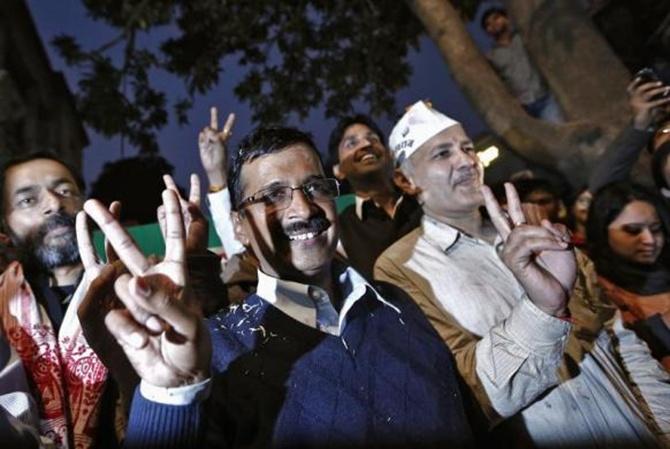
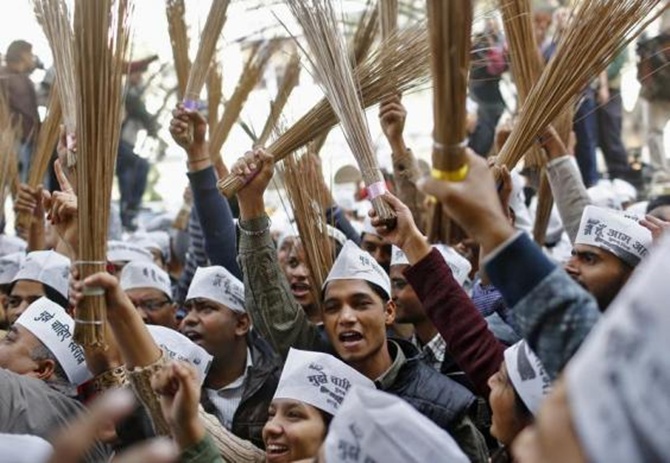
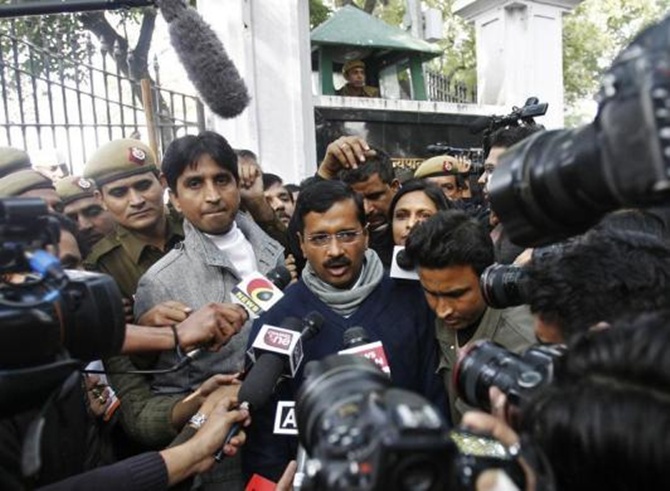
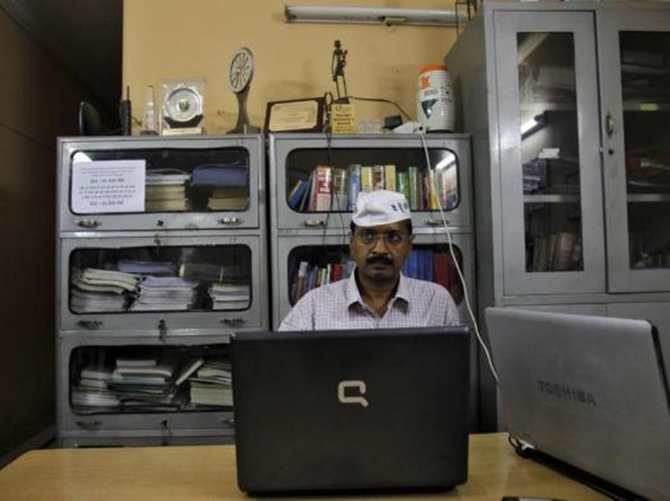

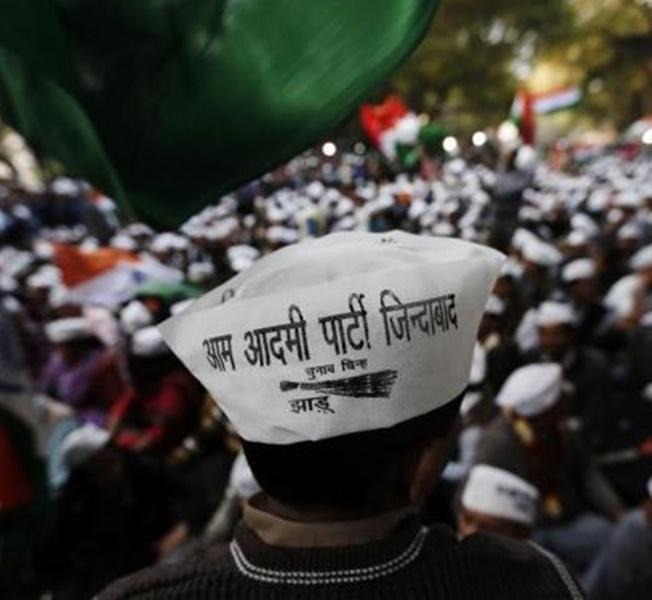

article